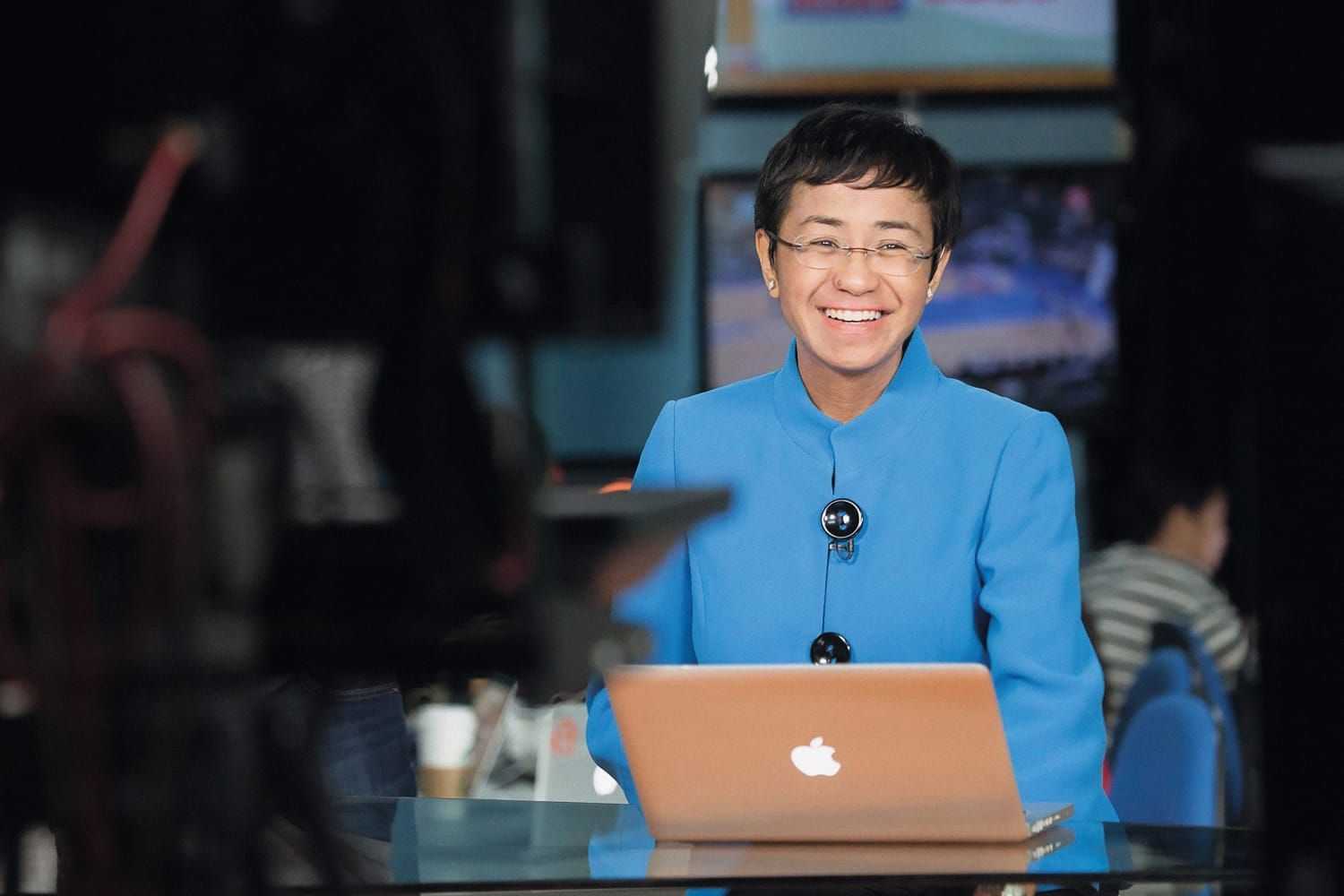Rappler’s Maria Ressa, who’s gained international recognition for her unabashedly honest coverage of President Rodrigo Duterte’s authoritarian governance, receives this year’s Nobel Peace Prize making her the first-ever Filipino laureate. Watch her moving speech from the awarding ceremony below
Maria Ressa continually makes international headlines for her work as an activist and journalist, and now, as the first-ever Filipino Nobel Peace Prize laureate. In 2020, the Rappler co-founder and CEO was charged with cyber libel by the Philippine court—a case that was ultimately dismissed. Years prior, the brazen writer was bombarded with a series of other accusations ranging from tax evasion to securities fraud, and was issued a total of ten arrest warrants in just two years. Now, Ressa is proudly celebrated across the world for another reason—she has just received the 2021 Nobel Peace Prize.
Honoured alongside Russian journalist Dmitry Muratov, Ressa was commended for her “efforts to safeguard freedom of expression, which is a precondition for democracy and lasting peace.” “Freedom of expression and a free press is prerequisite for a democratic society", declares Berit Reiss-Andersen, chairman of the Norwegian Nobel Committee. "Does it abolish war and conflict totally? Probably not. But it is the best defence that a society can put up against war and conflict.”
Although the recognition was publicly announced on the 8th of October, Ressa was prevented from travelling to Oslo to receive the award as she was considered a "flight risk" by the Duterte government. However, after weighted appeals by the United Nations and several Philippine lawmakers like Senator Richard Gordon and House Deputy Speaker Rufus Rodriguez, Ressa was granted permission to travel to Oslo for five days so she may attend the awarding ceremony. Finally, on the 10th of December, Ressa received her Nobel Peace Prize alongside co-prize winner Muratov.
See also: Cover Story: Hidilyn Diaz on Her Tough Road to Claim the Philippines' First Olympic Gold
Ressa’s unwavering devotion to protecting Filipinos’ democratic rights through journalism has been well-documented. She was named Person of the Year and a Guardian in the War on Truth by TIME in 2018, saluting Rappler’s chronicling of “the violent drug war and extrajudicial killings of President Rodrigo Duterte.” The award-winning documentary A Thousand Cuts dives into the continued conflicts between Ressa and the Duterte administration, exposing the disinformation riddled through government campaigns as well as the relentless criticism she faced from the regime and its supporters. The Rappler campaign “Hold The Line” soon became somewhat of a tagline for Ressa herself, symbolising her journalistic integrity to draw the line between good and evil. “We in Rappler decided we were going to hold the line on good”, the newly-crowned laureate explains. Her upcoming book How to Stand Up to a Dictator is set for release this April 2022 with a foreword by barrister and fellow activist Amal Clooney, best known for her international law and human rights specialisations.
See also: How Does Nobel Peace Prize Winner Maria Ressa Overcome Adversity?
